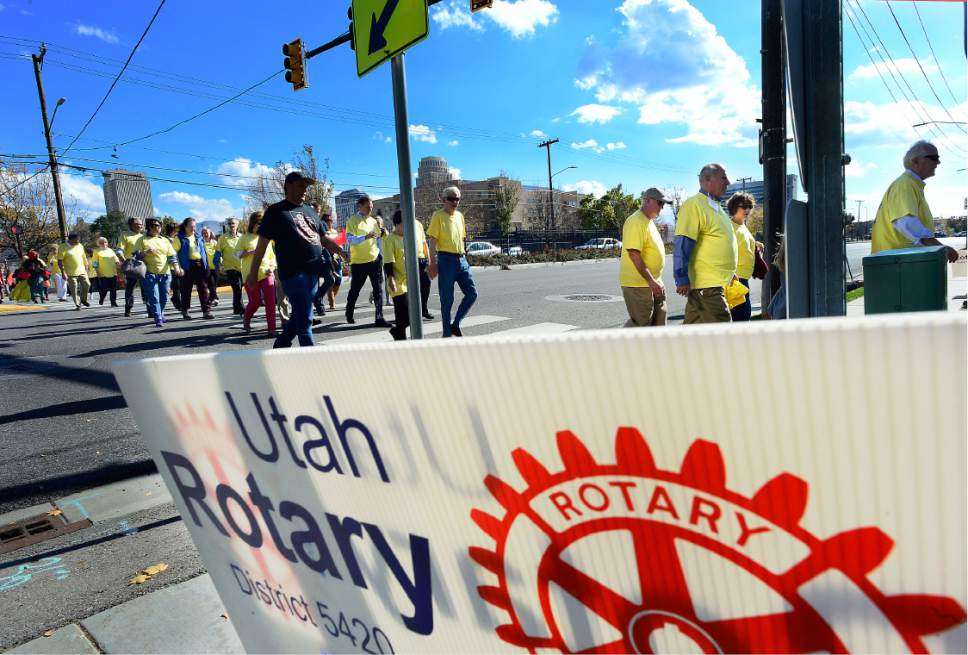This is an archived article that was published on sltrib.com in 2016, and information in the article may be outdated. It is provided only for personal research purposes and may not be reprinted.
Members of the Utah chapter of Rotary International honored the state's refugee and immigrant community on Saturday.
The event, at Salt Lake City's West High School, included speeches by community leaders, a walk led by Burundi drummers, a video screening featuring refugee interviews and a successful world record attempt.
Michael Wells, youth services chairman for Utah Rotary, said the event was both a celebration of the 100th anniversary of the Rotary Foundation, and a tribute to the difficulties and challenges faced by Utah's refugee families.
"It's not an easy path and we're looking for ways to break down barriers," he said. "We want to change the world. We want to make it a better place."
After being led by drummers to West High, roughly 400 Rotarians, or members of the international service organization, arranged themselves on the school's football field to create the Rotary symbol.
The formation was overseen by an adjudicator from Guinness World Records, who acknowledged the group for successfully creating the world's largest human image of a cog wheel.
"This is to bring attention to Rotary's efforts not only locally, but internationally," Wells said.
Julie McAdams, an attorney and wife of Salt Lake County Mayor Ben McAdams, said Utah is lucky to be a resettlement location for refugees.
"It does so much for our community," she said. "It makes it vibrant."
Event organizers presented a check for more than $7,000 to the Rotary Foundation, a fundraising arm of the service organization known for its funding of polio eradication efforts and education programs around the world.
Guests were also shown a series of videos, presented by the Life Story Library Foundation, featuring testimonials by members of Utah's refugee community.
Wells said it can be difficult for refugees to tell their stories, but those personal narratives undercut the rhetoric that is often directed at immigrants to the United States.
"It's unfortunate that there's been a lot of negative press about refugees," Wells said. "There's a lot more really good people that deserve to have an opportunity."
Twitter: @bjaminwood



